- Home
- Michael McDowell
Katie Page 7
Katie Read online
Page 7
“How did you do it?” cried Philo. “How did you murder my grandfather?”
“I tried with the stew,” said Katie in a hurried whisper, for John called her with impatience now. “The meat was bad, but it only made him ill. So I—”
“So you what?”
“Oh,” said Katie, with a harsh little laugh, “then I remembered your fortune . . .” And a moment after this, Philo heard Katie clattering down the steps. A door was slammed shut downstairs, and only a few moments afterward Philo listened to the sound of the wagon wheels along the track to the south. In the distance, over the chill night air, she could hear Katie’s laugh.
Philo was left alone in unvisited Parrock House, on isolated Parrock Farm, locked in the room with the corpse of her grandfather. The moon shone in through the window, casting its cold pallor into the mirror over the mantel, to be reflected once more in Richard Parrock’s glazed eyes. He seemed to stare at his granddaughter.
Philo dried her tears with the hem of her skirt. She rose to go and shut the dead man’s eyes. She still did not know how he had died – Katie was so obviously crazy that even her testimony that she had killed him was not to be relied upon. Certainly the girl’s statement, “Then I remembered your fortune . . .” made no sense. What had that fortune been? Philo found it difficult to recall, though she and Katie had been together in the kitchen scarcely six hours before. There had been a woman with a bloody needle, and a mound of gravel, and . . .
The moonlight reflected from the mantel mirror lighted the breast of her grandfather’s nightshirt. It was stained, not with blood or sickness, but with soil. Philo touched her fingers to Richard Parrock’s staring eyes, but just as she did so a small stone fell from between the dead man’s lips.
The staring eyes remained open, but the head of the corpse lolled forward. With a soft hiss, pebbles and small stones fell from its mouth and mounded in its lap.
Philo jumped back and, in so doing, overturned a small pail and a small scoop such as are a child’s toys. More sand and stones spilled out onto the floor.
Katie Slape had shoveled gravel down the old man’s throat until he had strangled on it.
Chapter 11
DESTITUTE
Philo knew that she must not wait until the morning and the arrival of the field hands before she attempted to get out of the room. She could not even know for certain that the workers would appear on a Saturday. But more than this, her poor grandfather deserved that she do all she might toward the apprehension of his murderers. Though she had no doubt that it was Katie alone who had killed the old man, Philo considered that the entire family was guilty of the crime. If Hannah and John Slape had not themselves shoved gravel down Richard Parrock’s throat, they had prompted the act, they had condoned it, and in the end they had applauded their child’s terrible deed. A second and scarcely less important reason for haste was Philo’s scant hope that the Slapes might be apprehended before they had the opportunity to secrete or dispose of the fortune which her grandfather had left her.
Philo went to the casement, raised the sash of the window, and peered out. All was quiet on moonlit Parrock Farm, but there was a quietness still more terrible in the bed behind her. It was impossible for Philo to be oblivious to the fact that she was alone in the room with a corpse, alone in the house, without a living being for perhaps two or three miles – but her position demanded that she not give way to superstitious fear. The ground, hard and stony, was fifteen feet below the window, too great a distance to jump without fear of injury. However, a pipe for drainage had been raised at a corner of the house about three feet from the window, and it might be possible, if she could grab onto it, to let herself down to the ground slowly.
Kneeling on the sill and holding on to the sash for balance, she leaned far out and only just managed to grasp the drainpipe. It was inconveniently large, and pricks of rust bit into her hand. But no other way of escape presented itself, and Philo was determined not to remain in Parrock House while her grandfather’s murderers – and the thieves of her fortune – got away. Still with her hand against the drain, she rose and prepared to spring from the sill. Taking one large breath, she leapt, and with both hands grasped the drain. Her legs knocked painfully against the cold stone of the house. Unfortunately, the thrust of her weight detached the rusting pipe from its pins at the roof of the house, and the drain began to pitch out over the ground. Philo, though frightened, had the sense to shift her body so that the drain fell along the line of the stone wall. She was able then, by scraping her poor stockinged feet against the stones, to slow the descent. But in the dark and in her concentration, she could not see and thus avoid the protruding casement of one of the kitchen windows, and she knocked her head against a corner of it.
That night Philo knew no more.
When she was shaken awake, her consciousness at first was only of cold and stiffness. She looked up and around her, bewildered. The sun had risen and she lay on frosty ground. She could not at first remember where she was.
“Who are you, girl?” asked a man of about thirty years who was bending over her. Other men and a young boy were gathered curiously behind him.
For a moment Philo did not reply. She had first to puzzle out her whereabouts and the identities of these men. When she realized that she was on Parrock Farm, she concluded that they were the farmhands – and the memory of the previous night’s terrible events returned to her. After a few moments Philo said, “My name is Philo Drax. Richard Parrock is my grandfather. The Slapes have murdered him for his money, gone away, and left me here.”
One of the men looked at the fallen drain. “Were you trying to break into the house?” he demanded suspiciously. “I never heard before of a girl thief.”
“No!” Philo cried. “I am Richard Parrock’s granddaughter, I—”
“Slapes is the only family Richard Parrock’s got,” somebody said triumphantly, thinking he had caught Philo in a patent lie.
Philo no longer attempted to explain. She pointed at the window through which she had come. “My grandfather lies dead up there,” she said. “He was murdered. Is there someone to take me into Goshen to inform the officers of the law?”
The field hands – for these were the men, shiftless and cagey, whom John Slape had hired to work Parrock Farm – looked at one another, hoping perhaps that one of their number would step forward as a leader.
“Let’s see him!” cried the boy who was with them. “Let’s see the old man dead!”
“Where’s Mr. Slape?” demanded a man who had not hitherto spoken. “Where’s his wife? Did you kill them too?”
Philo, now that her dizziness was beginning to wear away, was becoming alarmed. These five men and this boy were improbably dense, and if she spoke five declarative sentences, they seemed incapable of taking in more than one of them. And it was as Katie Slape had predicted – though on this point Philo had had no fear the night before – Philo herself was thought to have committed the murder.
Philo repeated her explanations at least thrice more. She led the men into the house, up the stairs, and into her grandfather’s bedroom. They crowded round the bed and wondered at the mound of gravel in the dead man’s lap. One of their number went into the hallway and called sheepishly for the Slapes. It was only when Philo dragged open the doors of the stable and showed them the wagon gone that the men were persuaded that indeed, Hannah and John and Katie had departed.
While two of the men hitched a little cart to one of the horses, Philo washed herself as best she could and rubbed generous amounts of Pond’s Extract onto the cuts and scrapes she had sustained in her fall. Her boots were still in the little room beside the pantry, but the remainder of her clothing had disappeared in the carpetbag that had also taken away her fortune and her future. She had only the dress she wore now.
She was driven into Goshen by the man who had first shaken her into wakefulness. The others loitered about the door of the house, and when the wagon was only a few dozen ro
ds along the road, they hurried inside. Philo was certain that these men and the boy were after plunder, but since it was more important that she get to Goshen with news of the Slapes than protect what little remained of her inheritance, she made no remonstrance to the man who drove the horse.
It was with a sober brain and weary body that Philo Drax entered Goshen that morning. She had arrived at Parrock Farm at just about the same hour the day before, full of ambitious hope and determination to free her grandfather from the terrible family who had wound themselves about him. Now Richard Parrock was dead, she was destitute, and the Slapes were richer by almost thirty thousand dollars.
Chapter 12
MR. KILLIP
Philo’s bedraggled condition and her request to be directed to whatever officer of the law was resident in the town excited much comment in Goshen. Of her grandfather’s death and the perfidy of the Slapes Philo thought it prudent to say nothing as yet, though her caution was to no avail. The hired man who brought her into town spread the news quite as effectively as if it had been written in the sky. To what Philo might have said, however, he added his opinion that she had killed the old man herself, murdered the Slapes into the bargain, and buried their bodies somewhere about the property. The improbability of this tale did nothing to prevent its being widely accepted.
Goshen was but a scrap of a town, and its ranking officer of the law was a justice of the peace. This gentleman, however, was absent in Philadelphia, so Philo went instead to Mr. Killip, her grandfather’s lawyer. She found him at his home, at work in his study.
Mr. Killip was a man about fifty years of age, tall and thin – almost gaunt – with white hair and white brows and skin so pink it looked as if he had been scrubbed all over with a wire brush just before the door to the room was opened. He had a kindly expression, and Philo felt no hesitancy in confiding her story to him.
“I am Philo Drax, sir.”
He smiled. “Miss Philo,” he said. “I am glad to see you here. But I am sorry to see that you had such a poor journey,” he added when he noticed the state of her clothing. “But in any case, I know that your grandfather will be happy to see you. Though I should say it was perhaps a mistake to seek me out. You were to come to Goshen in the character of a girl seeking employment, and the Slapes might be suspicious if they learned that you had visited Mr. Parrock’s lawyer.” He cocked an eye at her and sighed, as if disappointed not to find her cleverer.
“Sir,” replied Philo gravely, “I have already been to Parrock Farm. I was to take Grandfather away last night. But the Slapes murdered him and then locked me in the house. When I tried to escape from a second-story window I suffered a fall and did not regain consciousness until this morning.”
This terrible news was a shock to Mr. Killip, who had respected Philo’s grandfather greatly and had been friends with him many years. After pacing about the room for several minutes and holding up his hand to enjoin Philo to silence, he seated himself in a chair beside the window and, turning away his face, begged Philo to describe all that had happened since her arrival in Goshen.
Philo provided what she hoped was a straightforward account, though once or twice she halted for excess of emotion. Now that she was out of that room, away from Parrock Farm, and safe in the presence of a man who evidently believed her, the full misery of the events of that terrible day broke in upon her.
When she had finished, Mr. Killip turned and said, “Miss Philo, I must beg your forgiveness.”
“For what?”
“For not having taken your grandfather away from those terrible Slapes myself.”
“It is not your fault, Mr. Killip.”
“It was not until recently that your grandfather confided to me his unhappy situation with his daughter-in-law and her new husband. When he told me, I asked him to come and live with me here, but he would not. It was about that time that he conceived of the idea of writing to Mrs. Drax, whom he considered he had fearfully wronged. I said that I would wait for you to appear, but that if you did not, or if you were not successful in removing him from the house, I should take him out myself. I ought not to have waited, but I did not know that the Slapes were so bad as they were.” He shook his head ruefully.
“Mr. Killip, my grandfather thought highly of you. I wish that you would advise me what I should do now.”
“It is a bad piece of business, Miss Philo. Richard made a great mistake in cashing those bonds – it was not prudent to have so much hard cash about him.”
“No,” Philo agreed grimly, “it was not.”
“If he had simply taken the bonds from the bank and carried them home, your fortune would be safe at this moment. The Slapes could not have cashed them without his endorsement. If only Richard had confided in me.”
“I wish that he had,” cried Philo, unable not to think a little ill of her grandfather. “But the bonds were not the whole of his property. What about Parrock Farm?”
“Legally, that belongs to the Slapes.”
“But they murdered him!”
Mr. Killip shook his head. “That has not been proved, and if the Slapes have gone away beyond our reach – as appears to be the case – it may never be proved. It will be possible to institute proceedings against them in absentia, but such a procedure will take considerable time. I will of course undertake it for you, but I would not expect much – and I would certainly not expect it soon, Miss Philo.”
“What should I do now?” the young woman asked, almost despairingly.
“I think you should go back to your mother in New Egypt and tell her that her father is dead. I will take care of things at the farm. I owe that to Richard and yourself for my unpardonable laxity in this matter. My poor Richard!” he exclaimed.
That afternoon, Mr. Killip drove Philo to Cape May Court House, where news of the terrible murder of the rich farmer had preceded them. Rumors of the crime having been perpetrated by a servant girl came also, and Philo was pointed at and shunned as she waited beside the lawyer for the cars to arrive at the station. A prim, cold sort of woman murmured, not entirely beneath her breath, “Why is she not arrested?” Mr. Killip paid her fare and gave her five dollars besides, but there had not been time to provide another outfit, and she wore the same torn and mud-stained skirt and jacket she had put on at Parrock Farm. A piece of disturbing news had arrived at Mr. Killip’s house while Philo took a quiet dinner with the lawyer: John Slape had over the past six months sold off more than half the best acreage of Parrock Farm, so that the value of the property was substantially decreased. Even if through litigation Philo and her mother regained Parrock Farm, there would be little enough of that left for them.
“Philo,” said Mr. Killip, just as the train was pulling in, “a word of advice.”
“Yes?”
“Don’t come back this way.”
Philo looked to the left and to the right. Everyone on the platform appeared to stare at her, and she knew what information was conveyed in their incessant whispering.
“I won’t,” she said.
“You’re suspected of the crime, and I may be brought to task for ‘harboring’ you.”
“Mr. Killip, I hope—”
He shook his head reassuringly. “I can take care of myself, but I warn you now – take care with this business. And when you change cars in Philadelphia, try to stay below notice.”
She nodded understanding. Not only was she to return to New Egypt with empty hands, she was to return sneaking.
From the cover of some brush on the other side of the tracks, a little boy, emboldened by her dejected aspect, flung a stone at her head. “Murderer!” he hissed, and then scampered off.
Philo spent that Saturday night in the Philadelphia railway station. The evening was chill but all the places near the coal stoves had been taken by loafers whom mere gallantry couldn’t induce to give place to a powerless girl. She was stiff from the cold, sore from the fall she had sustained, and desperately uncomfortable because at Mr. Killip’s she had
had the chance for only a superficial washing. She reflected bitterly that perhaps the only legacy she would receive from her grandfather was the dirt of Parrock Farm which she carried away on her clothes and body.
Once she was roughly shaken awake by a policeman, who, suspicious of her jumbled attire, demanded reason for her presence. She carried no baggage or proof of her innocent identity, and it was only by dint of long persuasion, humiliating to herself and greatly amusing to the loafers at the coal fire, that she convinced the officer that she only waited for a morning train to New Egypt.
After this, she remained awake and huddled in the darkest and coldest corner of the station. Reflecting on Mr. Killip’s warning, she had begun to fear that she would be arrested for the murder of her grandfather.
She breakfasted on a biscuit and coffee and boarded the eight o’clock cars that would leave her in New Egypt.
It was a sad journey for Philo. Not only was her grandfather dead – and she reflected bitterly that he might not have been killed by the Slapes but for their fear that she had come to take him away – but the fortune that he had meant for her and her mother was gone. She would slip noiselessly back into New Egypt, and never have hope again of raising her head above brackish poverty. Philo dreaded the years to come with her mother, whose sewing never did and never would support them comfortably. Jewel Varley’s prediction for her life was a bitter recollection. But Jewel Varley, who had never known poverty, did not even know the worst of what such a life entailed. Jewel imagined poverty only as a meager wardrobe and prohibitions against fashionable travel. She never thought of scanty meals, and the worried watching of the calendar for the mortgage payments, the pennies carefully hoarded and spread out each night on the counterpane and jealously counted, the terrors of illness, and never the prospect of a tomorrow brighter than yesterday. Poverty bound the Draxes in cords, and as the cars rolled through the black New Jersey countryside toward New Egypt, those cords seemed to tighten until Philo felt she could scarcely breathe.

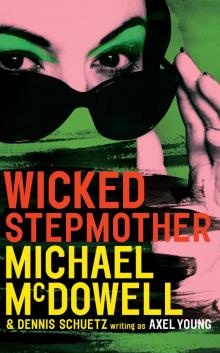 Wicked Stepmother
Wicked Stepmother Blackwater: The Complete Caskey Family Saga
Blackwater: The Complete Caskey Family Saga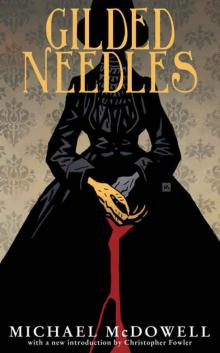 Gilded Needles (Valancourt 20th Century Classics)
Gilded Needles (Valancourt 20th Century Classics)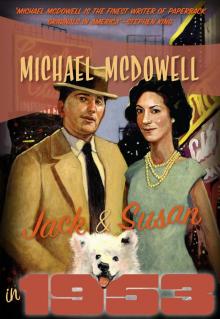 Jack and Susan in 1953
Jack and Susan in 1953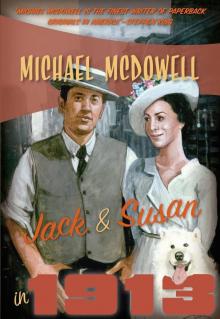 Jack and Susan in 1913
Jack and Susan in 1913 Rain
Rain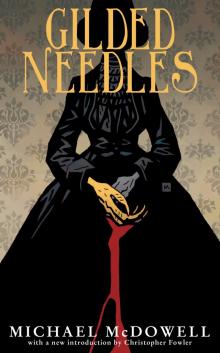 Gilded Needles
Gilded Needles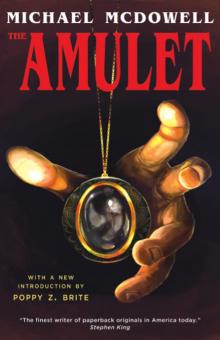 The Amulet
The Amulet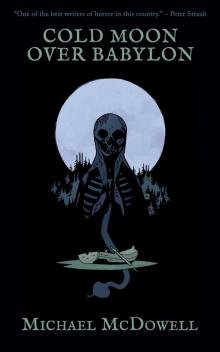 Cold moon over Babylon
Cold moon over Babylon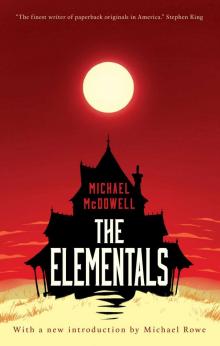 The Elementals
The Elementals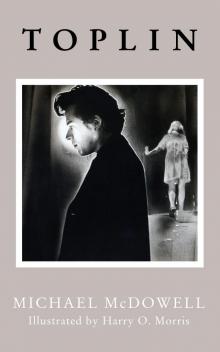 Toplin
Toplin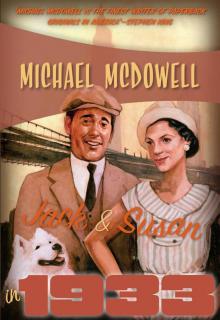 Jack and Susan in 1933
Jack and Susan in 1933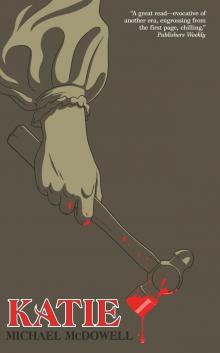 Katie
Katie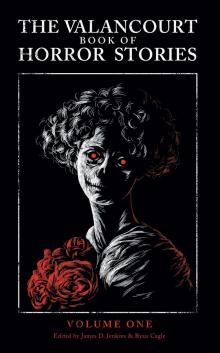 The Valancourt Book of Horror Stories
The Valancourt Book of Horror Stories